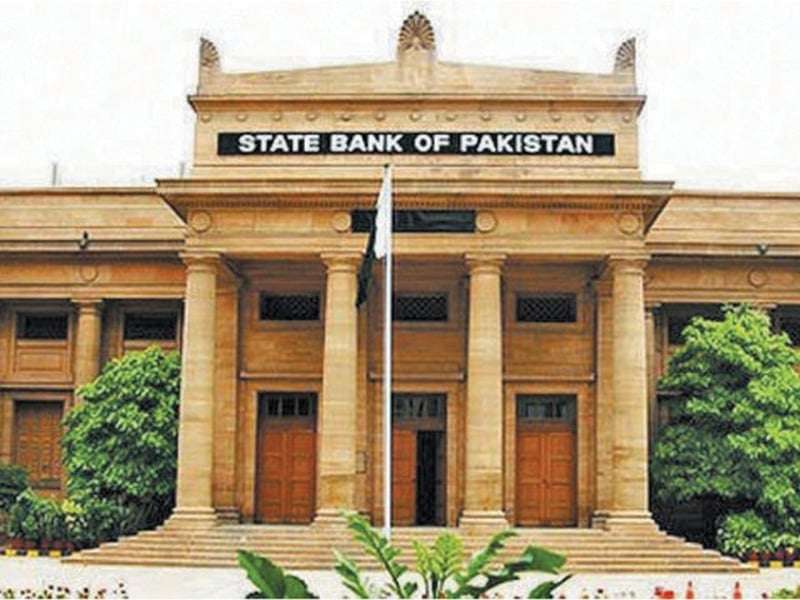
|
Getting your Trinity Audio player ready...
|
Introduction
In a critical call for action, State Bank of Pakistan (SBP) Governor Jameel Ahmad urged banks to prioritize agricultural financing as a crucial and viable business line. Pakistan’s agriculture sector, despite being integral to the country’s economy, faces multiple challenges, including low productivity, the adverse impact of climate change, and a limited financial inclusion rate. To ensure the sector continues to thrive, banks are encouraged to increase their presence in rural areas and cater to the needs of farmers with comprehensive financial solutions.
This article explores the importance of agri-financing, the SBP’s recent initiatives, and how banks can help drive growth in Pakistan’s agriculture sector through greater financial inclusion and innovative practices.
The Role of Agriculture in Pakistan’s Economy
Agriculture: The Backbone of the Economy
Agriculture remains a cornerstone of Pakistan’s economy, contributing significantly to the country’s GDP, food security, and employment. Despite challenges, it provides a livelihood to a large portion of Pakistan’s population, especially in rural areas. The sector’s integration with industries and services further highlights its relevance to Pakistan’s overall economic stability and development.
The sector’s importance was highlighted by Governor Jameel Ahmad during a recent meeting of the Agricultural Credit Advisory Committee. He underscored how agriculture influences the country’s food security, rural livelihoods, and the potential to connect with industries and services sectors.
Declining Agricultural Growth
However, the sector is facing difficult times. Despite a remarkable growth rate during FY24, agricultural growth slowed down significantly in the first quarter of FY25, registering only a 1.2% growth compared to 8.1% in FY24. This deceleration in growth signals a potential decline in Pakistan’s GDP, which recorded only 0.9% growth in Q1FY25, a sharp decrease from 2.3% during the same period in FY24.
The wheat crop, a significant agricultural output, also appears to be weaker this season, adding to the worries about food security and highlighting the urgent need for innovation and resilience in the agriculture sector. Therefore, the government and banking sectors must collaborate more effectively to provide sustainable solutions for farmers.
SBP’s Efforts to Boost Agri-Financing
Record Credit Disbursement in FY24
In FY24, collaborative efforts between the SBP and various banks resulted in a record credit disbursement of Rs 2,216 billion. This marked a significant 25% increase compared to the previous year, demonstrating the commitment of both the SBP and financial institutions to support Pakistan’s agriculture sector.
The SBP continues to drive efforts to enhance agricultural credit disbursement, which is vital for boosting the growth and resilience of farmers, especially in the wake of climate change and market uncertainties.
Agri-Financing in the First Half of FY25
In the first half of FY25, a substantial Rs 1,266 billion was disbursed, and the number of borrowers rose to 2.86 million. Although this shows progress, it also indicates that there is still ample room for improvement. Despite the positive growth, the number of small farmers benefiting from financial services remains relatively low. The expansion of financial services in underserved and unserved areas is critical to include more small borrowers in the agricultural financing ecosystem.
Importance of Expanding Rural Presence
To increase the reach of financial services to small farmers, Governor Jameel Ahmad emphasized that banks need to broaden their rural presence. He called on banks to open more branches dedicated to agricultural lending and deploy additional agricultural credit officers in these areas.
By enhancing the physical and human resources available in rural regions, banks can provide better support to small-scale farmers and ensure they receive the financing and guidance necessary to improve productivity and resilience.
Recommendations for Banks to Enhance Agricultural Lending
1. Expanding Rural Branch Networks
Banks are urged to open more branches in rural areas that specialize in agricultural finance. The establishment of dedicated agri-lending branches will help farmers access services more easily, especially in remote regions.
2. Deployment of Agricultural Credit Officers
In addition to expanding the physical presence of banks, there is a need for more trained agricultural credit officers who can assist farmers with financial advice, loan applications, and business planning. These officers will act as a bridge between financial institutions and the farming community.
3. Implementation of Agricultural Credit Expansion Plans
The SBP governor emphasized that banks must fully implement their agricultural credit expansion plans. This includes investing in human resources, infrastructure, and digital technologies. By upgrading their systems and processes, banks can enhance the efficiency and accessibility of agri-financing services for farmers.
4. Collaboration with Government and Tech Companies
Another crucial recommendation is for banks to collaborate with relevant government departments, fintechs, microfinance institutions, and agri-tech companies to deliver end-to-end digital loan solutions and advisory services tailored for small farmers. This collaboration can help provide innovative solutions to farmers, who may otherwise have limited access to financial resources.
5. Adoption of Digital Solutions
The digitalization of financial services is vital for improving financial inclusion. By adopting digital loan systems and offering online platforms for loan applications, banks can reach more farmers across the country. Fintech companies can play an essential role in making agri-financing more accessible and efficient.
FAQs
1. What is agri-financing?
Agri-financing refers to financial services that are specifically designed to meet the needs of farmers. These services include loans, credit facilities, and other financial products that support agricultural production, equipment, and infrastructure.
2. Why is agriculture important for Pakistan’s economy?
Agriculture is vital for Pakistan’s economy as it contributes to food security, provides employment to millions of people, and serves as the backbone of rural livelihoods. Additionally, it is closely linked with other sectors such as industry and services.
3. What are the challenges faced by Pakistan’s agriculture sector?
Pakistan’s agriculture sector faces multiple challenges, including low productivity, the impact of climate change, water scarcity, and limited financial inclusion. These challenges require innovative solutions and greater support from both the government and financial institutions.
4. How can banks help small farmers?
Banks can help small farmers by expanding their agri-financing services in rural areas, offering more specialized credit products, and providing expert guidance through agricultural credit officers. Digital solutions can also play a role in reaching underserved farmers.
5. How can technology help in agricultural financing?
Fintechs and agri-tech companies can provide innovative digital solutions, such as online platforms for loan applications and advisory services. This will help make agri-financing more accessible to small farmers and streamline the loan approval process.
Conclusion
The role of agri-financing is indispensable in ensuring the growth and sustainability of Pakistan’s agriculture sector. By expanding their rural presence and investing in digital technologies, banks can offer better support to farmers, increase financial inclusion, and contribute to the resilience of the agricultural industry. Governor Jameel Ahmad’s call for action emphasizes the need for a collaborative effort between the government, banks, fintechs, and other stakeholders to drive this transformation and secure a more prosperous future for Pakistan’s agriculture.






